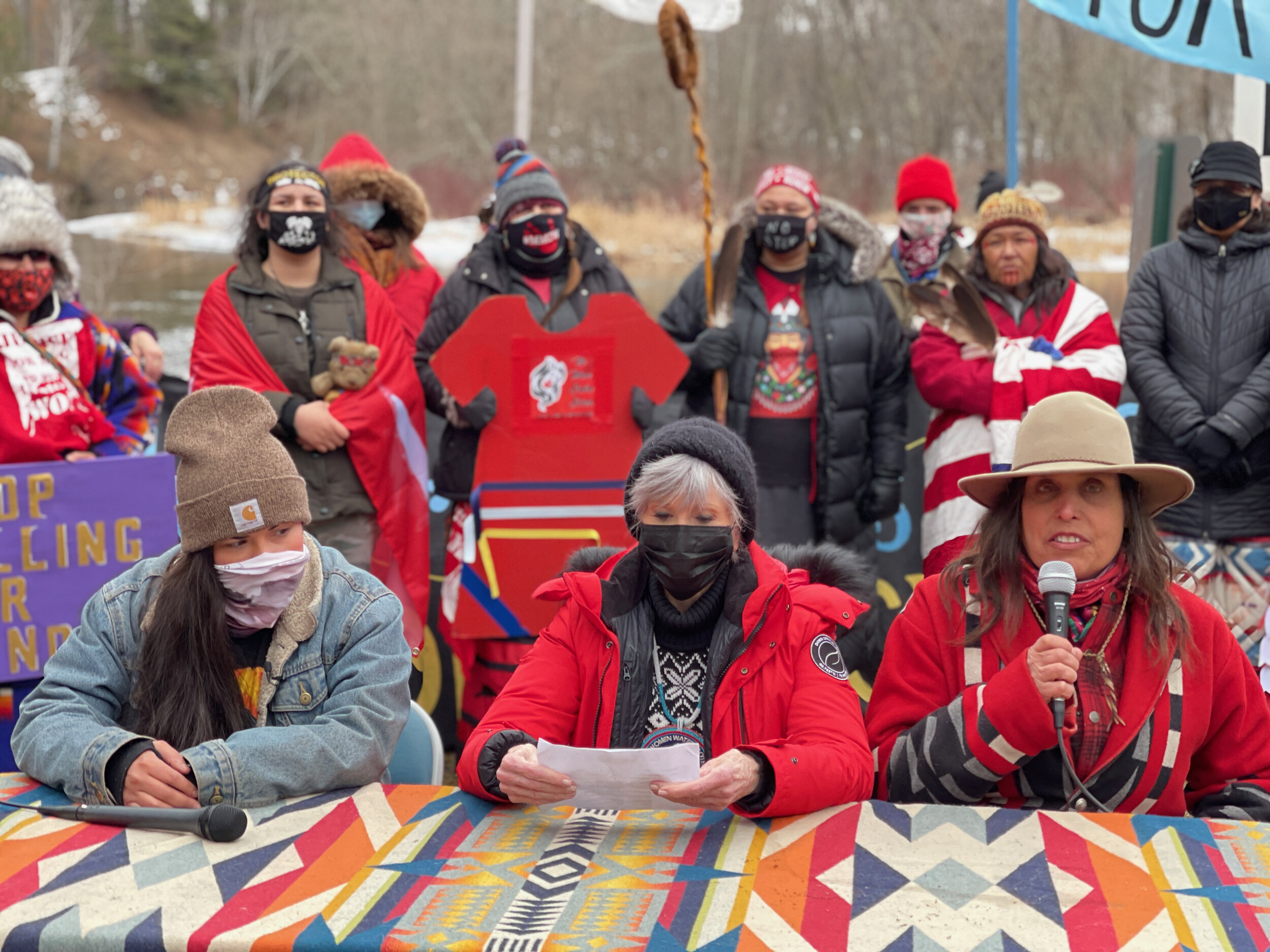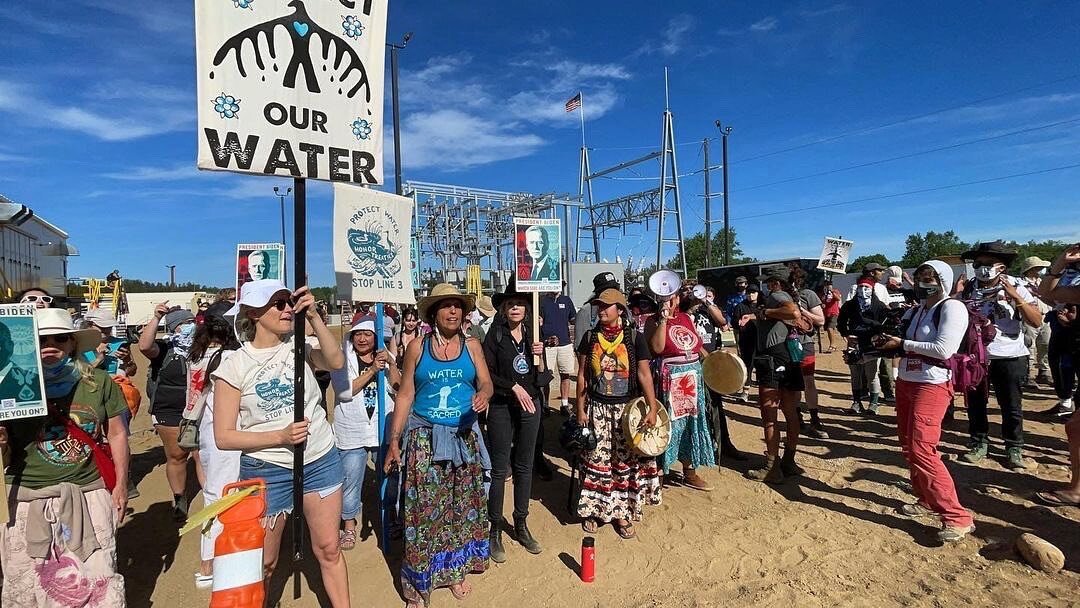Winona LaDuke receives the 2022 “Mother Earth (Lady of Agriculture) Award”
Winona LaDuke receives the 2022 “Mother Earth Award (Lady of Agriculture) Award ” for her Expanding Entrepreneurial Hemp Operations on the White Earth Reservation and Elsewhere.
Jane Fonda Talks Cannabis, Is Hot On Hemp For The U.S.
Jane Fonda Talks Cannabis, Is Hot On Hemp For The U.S.
An exclusive interview with the cross-generational icon Jane Fonda.
Jane Fonda talks cannabis: “Needless to say, I have smoked pot in my life,”
An exclusive interview with the cross-generational icon Jane Fonda by
Javier Hasse Senior Contributor
Vices: A column about cannabis, hemp, CBD and psychedelics.
A New Found Love For PotThe evolution of cannabis science and the increasing variety of intake methods available has opened up a whole new world of possibility for cannabis consumers. People can now select the right varieties and ways to ingest them to achieve very specific, desired effects.
And in this new paradigm, Jane too has reconciled with cannabis.“At dispensaries, they know how to steer you,” she explains.“About four years ago, to help me go to sleep at night, I would take a very microdose of Valium. And I would always have to take a short nap in the middle of the workday during the lunch break because I would have a kind of hangover,” she remembers.
“One day, my very good, progressive doctor said, ‘I would like you to stop taking the sleeping pill, and I suggest that you move over to a CBD [product] that helps you sleep.’”And so, she did.With the help of her local dispensary and its budtenders, Jane found the product that was right for her: a Dosist-brand vape pen. headtopics.com
See also:YouGov Study: 25% Of Americans Now Consume Cannabis, Use Grew 56% Since 2018“And boy, does it work for me,” she says, with a smile on her well-rested face. “I mean, you have to want to go to sleep; you have to be already in bed… But then, I'm out and I have no hangover the next day.”
And A Long-Standing Fascination With HempWhile weed was neverJane’s thing, hemp is a completely different story.Thatplant, she loves; and has done so for a very long time.“I wear hemp clothes,” she says. “I'm sorry to say that all of my clothes come from China because fabric made from hemp was outlawed in the United States. Big industry, I think, was behind that.
“I am really, really interested in having the U.S. bring back hemp as a major part of its materials economy,” Jane adds.But why does a Hollywood star like Jane Fonda choose to wear clothes made out of hemp? At least in the popular imagination, hemp fabrics feel more like a burlap wrap than like something a fashion icon would strut about in.
Well, times have changed. Nowadays, beautiful, soft, silk-like fabrics are made from hemp as well.“I fell in love with some pieces of clothing and then found out they were made of hemp and I was like: ‘Hemp? I thought it would be like a potato sack!’“But they weren’t. They were lovely and soft, and flexible and pliable.” headtopics.com
Beyond fashion, hemp can help change the world for the better, Jane continues.“You asked me why I think hemp is important. I'll tell you why: We have to stop fossil fuels; we have to phase out fossil fuels from our economy, and we have to do it quickly. We need to be looking for things that can be integral to a national economy that is democratic.”
Under The Influence (Of Winona)
As Jane’s activism starts to show in the conversation, one name begs to be brought forward: Winona LaDuke.
Long-time friends Jane and Winona are currently protesting the $7.5 billion crude oil pipeline being constructed by the Canadian company, Enbridge, in Minnesota.
The project, Jane explains, poses a major threat to the environment; the pipelines would traverse two hundred bodies of water, including the headwater of the Mississippi River.
“These pipes transport tar sands, the most poisonous, damaging, dirty oil. And when it leaks, it sinks to the bottom of the water. It's very toxic and very hard to clean up,” she says. “Tens of millions of people depend on the Mississippi for their water. I went up there to try to bring national attention to this Enbridge Line 3, and I succeeded in that.”
Interestingly enough, it was Winona LaDuke who brought the Enbridge issue to Jane’s attention, just as she had done in the past with hemp.
“She’s the one who told me about Henry Ford’s hemp car. She's the one who made me understand the value of a hemp economy,” the artist declares.
Then, she moves on to quote her dear friend: “There was a moment in North American history when we had a choice. We could have chosen a carbohydrate economy, or a hydrocarbon economy. And we chose the wrong one.
“Now we have a chance to decide over. We should choose a carbohydrate economy in which hemp would figure centrally. I love that,” Jane adds.
She really does love hemp. Her face lights up as she mentions the tens of uses hemp has.
Hemp Farm Day at Winona's Hemp on May 8th with Alex White Plume and friends
Via YES! Magazine: Tribes Revive Traditional Hemp Economies
More than 20 years ago, Alex White Plume, a leader of the Oglala Lakota, planted his first hemp crop on Wounded Knee Creek, on the Pine Ridge reservation in South Dakota. I call White Plume “the Hemperer.” He’s considered to be one of the grandfathers of the cannabis economy for Native people. Like John Trudell, the great Dakota philosopher and musician, White Plume always said, “Hemp is the way.”
Winona LaDuke is a contributor to YES! Magazine
Winona LaDuke is an internationally renowned environmentalist, economist, author, and industrial hemp grower. She is executive director of Honor The Earth and founder of the White Earth Land Recovery Project and is known for her work on tribal land claims and sustainable tribal economies. She is an enrolled member of the Mississippi Band Anishinaabeg of the White Earth Nation in northern Minnesota. In 1996 and 2000, she was the Green Party’s vice presidential candidate. Her books include Last Standing Woman, All Our Relations and In the Sugarbush. LaDuke is a YES! contributing editor.
"Jane Fonda Knows She Isn't Chill" - The Green Revolution
Jane Fonda Knows She Isn't Chill
"I'm pretty intense."
By Samantha Simon Sep 10, 2020
“A friend of mine, an indigenous leader named Winona LaDuke, is trying to make hemp a major part of the American materials production.” - Jane Fonda
“ It was a big deal early on—many of our founding fathers used it. Henry Ford even built a car out of hemp! It ran on hemp oil too.”
Winona's Hemp News, Conferences
Building Indigenous Food Sovereignty in 14 First Nations in Northern Superior region
THUNDER BAY— Indigenous rural development economist Winona LaDuke spoke about heading to the sugar bush when the coronavirus disease 2019 (COVID-19) pandemic hit during the Building Indigenous Food Sovereignty virtual meeting on Sept. 16.
The Building Indigenous Food Sovereignty in and around Anishinawbewi Gitchi-Gami and Animbiigo Zaagiigam meeting was held via Zoom by the Thunder Bay District Health Unit and the Indigenous Food Circle, which works with 14 First Nations in the Thunder Bay area.
Intelligent and idealistic, Winona LaDuke turns to hemp farming, solar power to jump-start the 'next economy'
2020 Indigenous Hemp Conference gathers industry leaders by Lynn Mizner
Winona's Hemp News, Anishinaabe Agriculture
Winona's Hemp Spring Update: Iskigamizigan - the Maple Syrup making.
I hope you are well at this time, and I wanted to share with you some of our thinking here at Winona’s Hemp and Heritage Farm, and pray that we will all work together for that future that we see
Crisis is opportunity. The Chinese characters for crisis are 危机 “wēijī,” danger and opportunity. That’s now. Take a breath, maybe look at the night sky and see stars clearly. Enjoy this moment and breathe while Mother Earth gets a rest from our closed factories.
Let’s be better when we come out of this cluster of crises. Let’s appreciate each other, localize our economy, get cleaner, healthier, and grow some victory gardens of this millennium. Let’s continue to shut down dirty industries. Indeed, that’s our dream at Winona’s Hemp. Rowen White, the Seed Saver, calls them Resilience Gardens. With allies like the Indigenous Seed Savers, we are starting seeds.
Many of them. Nationally, seed sales are rocketing and people understand that localizing is an essential part to solving these world problems.
Winona's Hemp 2020 Update: This is the New Green Revolution.
Winona's Hemp Travels to Chimayó Hemp Enterprise
Announcing 3rd Annual Indigenous Hemp Conference with Winona LaDuke
Dear Friends, I’m so pleased to invite you to the third Indigenous Hemp Conference on the White Earth reservation hosted by the Anishinaabe Agriculture Institute and Winona’s Hemp. The conference – March 4, will offer an opportunity to collaborate , learn together and makes plans to grow our future.
VIDEO: Why we should get on a biodiverse, greener path | Winona LaDuke | FLOW TALKS: CANNABIS AS A CATALYST FOR CHANGE
Why we should get on a biodiverse, greener path | Winona LaDuke - Winona’s Hemp. Thought Leaders, Influencers and Luminaries Come Together to Share, Discuss, Inspire and Revel Around the Topic of Healing the Planet at Flow Kana’s Inaugural Event: FLOW TALKS: CANNABIS AS A CATALYST FOR CHANGE.
Opal Tometi, Jason Silva, Steven Kotler, Snoop Dogg, Winona LaDuke, Karim Webb, David Bronner, and More Deliver Powerful Calls to Action
What's the future of industrial hemp in Minnesota? More growth
Activist and hemp grower Winona LaDuke holds up the first hemp rope made in Minnesota in an estimated 70 years on Tuesday, Dec. 3, 2019, at the Minnesota Hemp Conference and Expo at the River's Edge Convention Center in St. Cloud. (Photo: Zach Dwyer, zdwyer@stcloudtimes.com)
READ THE ENTIRE ARTICLE HERE: https://www.sctimes.com/story/news/2019/12/04/whats-future-industrial-hemp-minnesota-more-growth/2595521001/
Winona LaDuke Walks the Walk by TheHempMag.com
Winona LaDuke Walks the Walk
By JULIA CLARK-RIDDELL
HEMP talks with the renowned activist about her efforts to bring hemp back to the forefront on Native lands, build a post-petroleum economy, and more.
This article was originally published in Issue 7 of HEMP in August 2019. Subscribe HERE or find in a local grocery store.
Indigenous Rights and Climate Justice Leader Winona LaDuke Urges Textile Industry to Protect the Earth: Advocates for Hemp Clothing
Indigenous Rights and Climate Justice Leader Winona LaDuke Urges Textile Industry to Protect the Earth: Advocates for Hemp Clothing
The Once Forbidden Fiber Takes Center Stage in Short Film for Patagonia Featuring LaDuke’s Mission for a Hemp-Based Society on Native American Soil as part of a New Green Economy.
Natural. Misunderstood. Legal. This is the story of hemp in the United States. A forbidden fiber in the U.S. since 1970, hemp has taken the heat for almost five decades. Until the Farm Bill passed in December of 2018, hemp was federally illegal to grow for commercial purposes, making it risky for businesses to invest in a new crop that was incorrectly classified as a drug.
White Earth Reservation, Minnesota (October 28, 2019) ─ Activist and author Winona LaDuke wants to inspire change, respect the Earth and make industrial hemp a worldwide regenerative material available to everyone, everywhere. LaDuke urges the textile industry in the short film produced for Patagonia by Little Village Farms, Misunderstood: A Brief History of Hemp in the U.S., to take the hemp plant seriously and approach it the right way. Once banned as an illegal fiber in the U.S., hemp has not been a part of the textile landscape for decades. Today, LaDuke believes the power of hemp will pave the way for a new green economy.
“Hemp is not something we should take for granted, and if we treat this plant with respect, this plant will help us change our world. If we continue to treat it like they did in the past industrial economy, it won’t help us,” explains Winona LaDuke, Indigenous Rights, environmental and climate justice leader. “I want to be a part of a group that does the right thing and wears clothing that will not destroy the environment."
For the past 80-plus years, hemp (containing little to no THC, hemp is the non-intoxicating variety of cannabis) was a forbidden crop and not allowed for commercial purposes, due to the prohibition of its intoxicating cousin, marijuana. However, unlike marijuana, the hemp plant has experienced a resurgence after the Farm Bill passed in December 2018, which gave hemp agriculture the green light to move forward as an industrial crop. Vote Hemp, a Washington D.C. -based advocacy group, estimates 115,000 – 138,000 acres of hemp were harvested in 2019.
Also, more than 34 states were licensed in 2019 to legally grow hemp for commercial purposes, prompting more states to increase efforts for hemp innovation across the country. Currently used in 25,000 products globally, industrial hemp-based goods include automotive parts, furniture, fiber and textiles, food, beverages, dietary supplements, beauty products, musical instruments, bio-plastics, construction materials and more.
Hemp, Food, and Balance
In addition to the film, LaDuke was recently recognized in the Sierra Club's online magazine for the foreword she wrote in a new book, Indigenous Food Sovereignty in the United States: Restoring Cultural Knowledge, Protecting Environments, and Regaining Health. Published in August 2019 by the University of Oklahoma Press as part of its Native American Studies Series, the book addresses social, political, economic, religious, and climate concerns associated with Indigenous food and health. "If we are unable to feed ourselves, we will not survive, and if we lose our whole being to our minds, policy work, and scholarly discussions, we will have lost our direction. We need to strike a balance,” LaDuke adds, “I feel that hemp can help undo the mess we have made, but we have to approach it right. We will get nowhere if we continue with the same aggressive industrial behavior.”
Winona LaDuke (left) on her farm in Minnesota being photographed by internationally acclaimed photographer Annie Lieibovitz.
LaDuke and Leibovitz
LaDuke is no stranger to hemp cultivation and believes the next economy will be hemp-centric. That’s one reason why famed photographer Annie Leibovitz visited LaDuke at her farm this past Summer, where she captured Winona's genuine connection to her ancestor's land through photography. "Hemp is a cornerstone of a post-petroleum economy and needs to be reintegrated into rural farming, particularly Indigenous farming," says Winona LaDuke.
Winona’s Hemp & Heritage Farm
Winona’s Hemp & Heritage Farm, located near the White Earth Reservation in Northern Minnesota, is working with the Anishinaabe Agricultural Institute to build a new locally grown economy based on food, energy, and fiber through a new hemp production facility on LaDuke's independent land adjacent to nearby tribal areas. The farm utilizes solar power for its buildings and horse-based energy in the fields. Vegetables and supplying food to the community is another passion of Winona’s. “We grow food such as corn, potatoes, squash, beans and other vegetables that focuses on regenerative farming and most importantly focuses on reduced petroleum agriculture,” explains LaDuke. “The future is organic; it’s green and local.”
Hemp Mill Fundraiser Campaign
Join Winona LaDuke and her fundraising efforts to fight climate change, build community, stimulate a new economy, and preserve the Anishinaabe Akiing territory, beautiful land of biodiversity and pristine waters in Minnesota.
My Courtship of Cannabis, by Winona LaDuke
She’s an amazing plant. You can learn a lot from a plant. For the past four years I’ve been hanging out with cannabis plants. I have a bit of a maternal streak which seems to translate well to animals and plants (children, I am not so sure), and I’ve been growing cannabis. That’s the plant’s name. We all say industrial hemp so that we are not demonized, and people don’t think I have a big marijuana farm out there by Osage. There’s apparently some “stigma” attached to cannabis. So, let me just say it loud and proud. I’m a cannabis grower.








